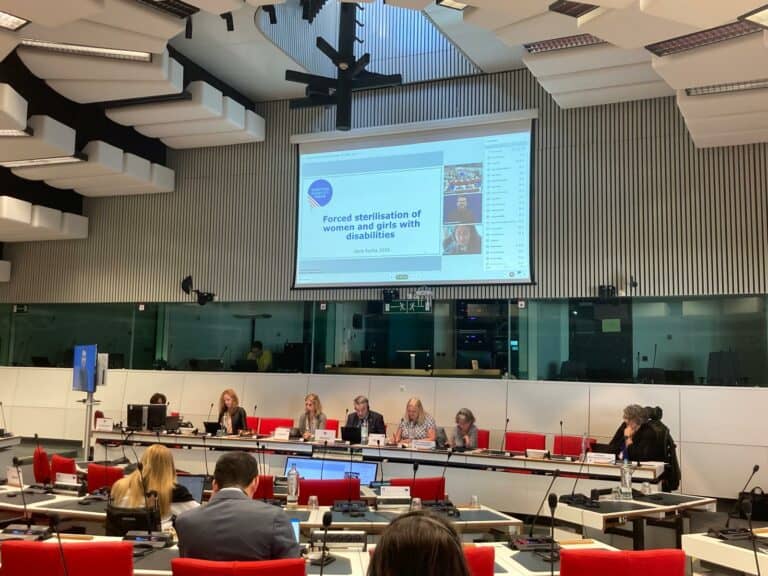The European Economic and Social Committee’s Permanent Group on Disability Rights held a public hearing on “Ensuring sexual and reproductive health rights to women with disabilities” on 8th July 2024. The event was an opportunity to learn more about policy, legislation, and actions at the EU level to combat gender-based violence and intersectional discrimination to ensure women with disabilities can access their sexual and reproductive health and rights on an equal basis with others. Furthermore, the event also included some international perspectives within the discussion.
EUD was invited to participate in the second panel discussion. EUD Policy Officer, Charlotte Olhausen, gave a presentation of EUD’s recently published report on “Combatting Gender-based Violence and Discrimination against Deaf Women and Girls in the EU”. This event was an ideal forum to highlight this report as it mainly focuses on the barriers faced by deaf women and girls in accessing their sexual and reproductive rights and health across the EU. Ms Olhausen stressed the need for EU and Member State level action to bridge the gap between the lived experiences of deaf women and girls in the EU and the EU legal framework in place to ensure their rights and accessibility on this topic.
Importantly, Ms Dovile Juodkaite, the co-rapporteur on the EESC Opinion on “Violence against women as a human rights issue: state of play of measures across the EU“, highlighted that it will be adopted soon. Moreover, further actions at the EU level were outlined, including the upcoming adoption of a recommendation on preventing and combating harmful practices against women and girls e.g. forced sterilization, forced abortion etc. (deliverable under the Gender Equality Strategy) as well as the employment of a strong intersectional approach at the EU level.
The key points highlighted during the event included:
- the significant lack of disaggregated data on women with disabilities and their experiences in exercising their sexual and reproductive health and rights;
- The lack of and need for accessible information and inclusive education on sexual and reproductive health and rights, as well as in the national sign languages;
- The need to pay attention to the intersections when addressing this topic;
- The need for leadership of women and gender-diverse persons with disabilities on this topc.
Despite the recently adopted EU Directive on Violence against Women and Domestic Violence, EUD will continue to advocate for the removal of barriers for deaf women and girls in exercising their sexual and reproductive rights, as well as the banning of forced sterilization in all EU Member States.











